Introduction to the flavor characteristics, taste and brand price of Blue Mountain Coffee beans how to identify the real Jamaican Blue Mountain Coffee
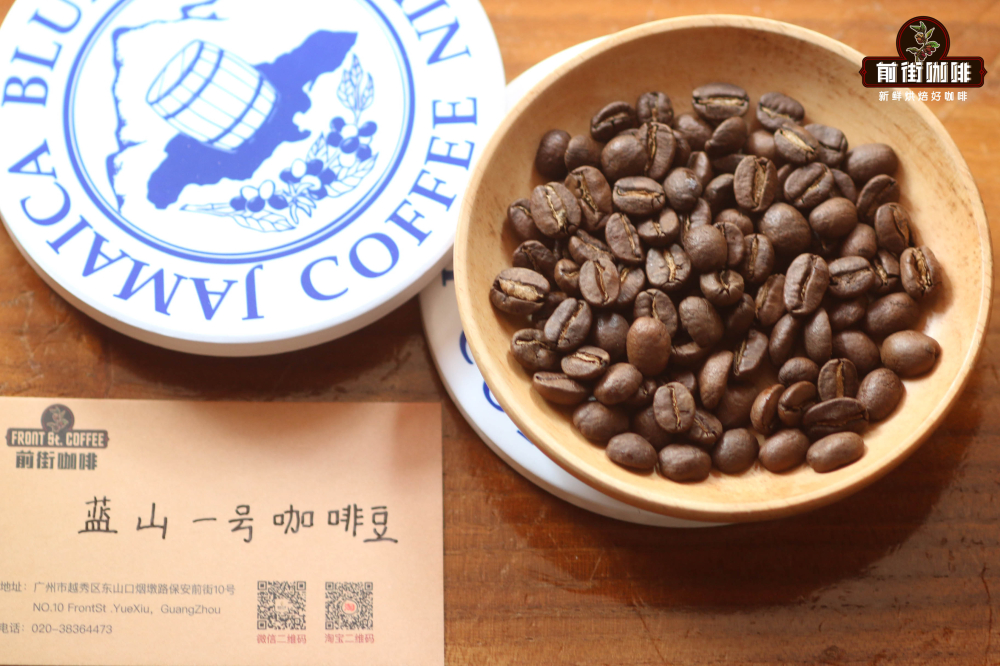
Introduction to the producing area of Blue Mountain Coffee
Blue Mountain Coffee refers to coffee brewed from high-altitude coffee beans from the Blue Mountains of Jamaica. According to the grade, it is divided into Jamaica Blue Mountain Coffee and Jamaican Alpine Coffee. The Blue Mountains are located in the eastern part of the island of Jamaica, hence its name because it is surrounded by the Caribbean Sea. On clear days, the sun shines directly on the blue sea, and the peaks reflect the bright blue light of the sea. The highest peak of the Blue Mountains, which is 2256 meters above sea level, is the highest peak in the Caribbean and a famous tourist attraction.

Located in the earthquake zone, with fertile volcanic soil, fresh air, no pollution, humid climate, foggy and rainy all the year round (the average precipitation is 1980 mm, the temperature is around 27 degrees), such a climate has created the world-famous Jamaican Blue Mountain Coffee. It also makes the second most expensive coffee in the world (the first is Kopi Luwak).
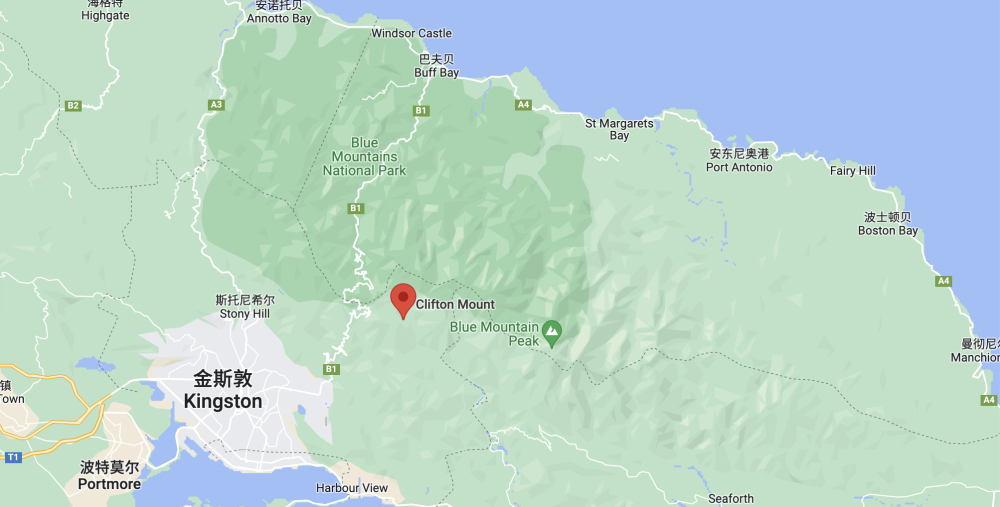
The characteristics of Jamaican Blue Mountain Coffee
Blue Mountain coffee beans have a very high quality, from the appearance of beans, each coffee bean is full and uniform, large particles, which is extremely beneficial for baking. The blue mountain coffee produced in the former street as an example, the roasted blue mountain coffee beans have a uniform color and give off a very aromatic flavor of roasted toast and roasted almonds.
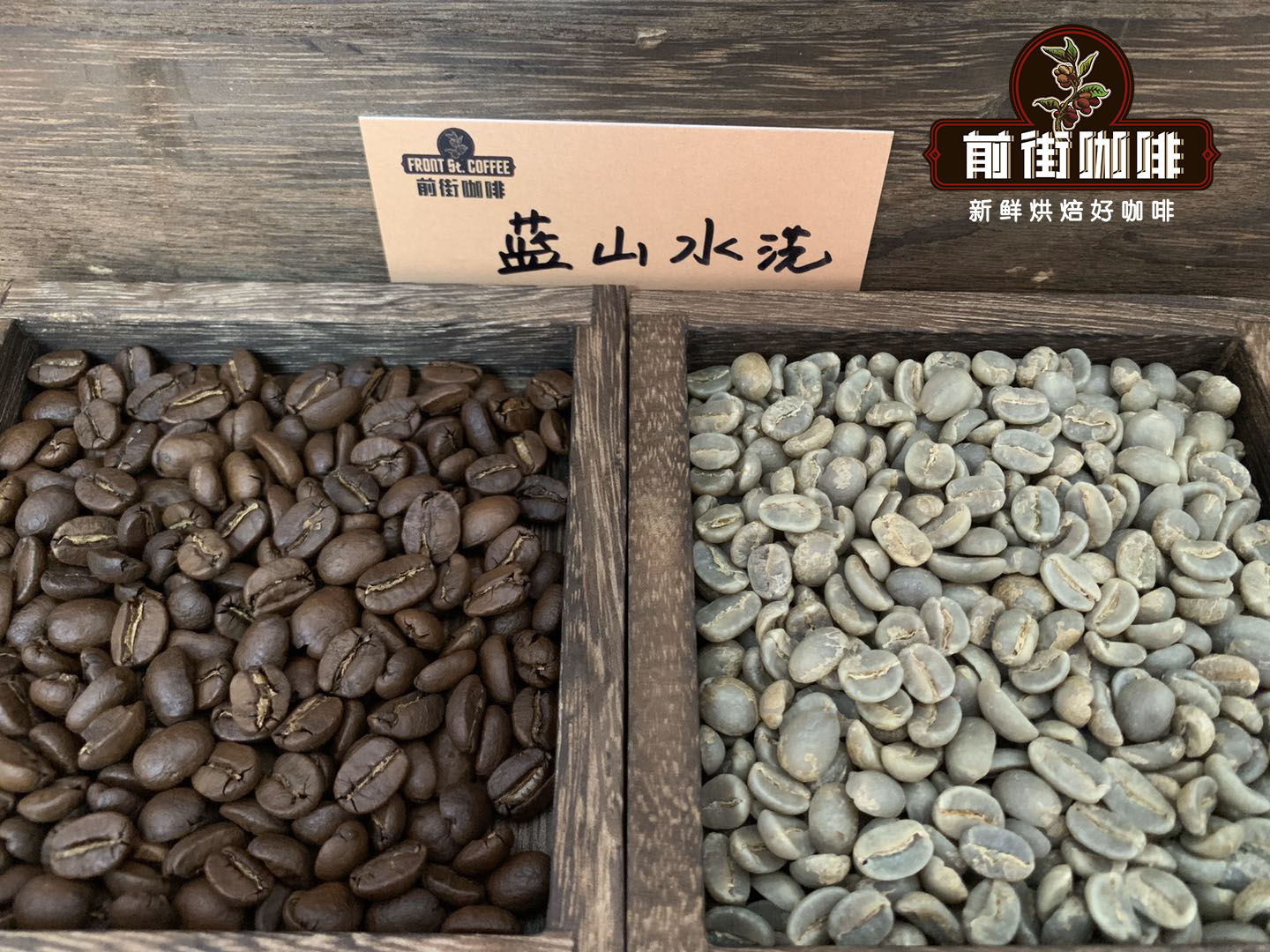
All this stems from the coffee revival program launched by the Jamaican government in the 1950s.
The Jamaican Coffee Industry Committee was established by the Government of Jamaica in 1950 to develop quality standards for Jamaican coffee and to monitor the implementation of quality standards to ensure the quality of Jamaican coffee. The Committee awarded special official seals for raw and roasted coffee exported from Jamaica because the use of Japanese loans improved the quality of production and thus ensured the market.
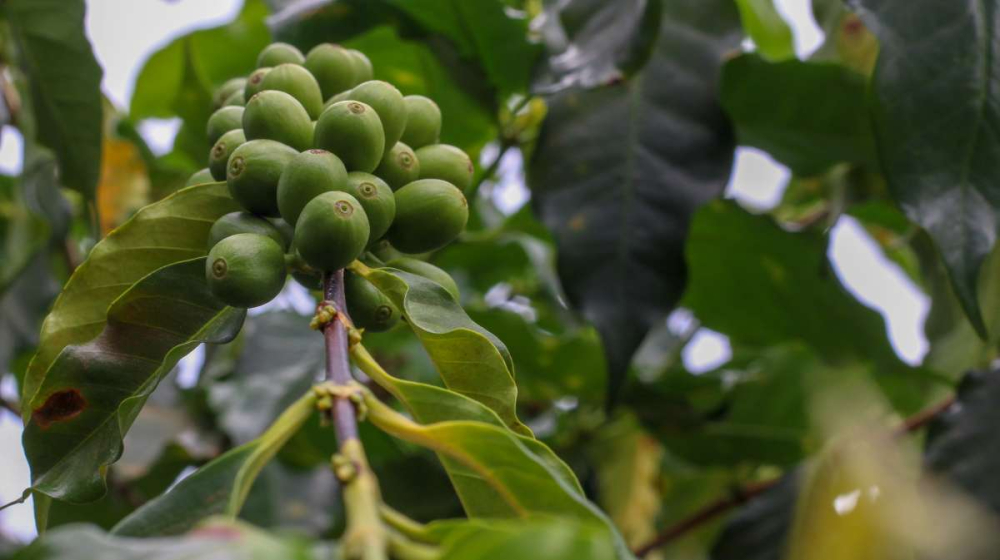
In planting, Jamaica planted a purebred tin card variety introduced in the 18th century. Because Jamaica is a small island environment and has little contact with the outside world, it successfully avoided the disaster of global coffee leaf rust in the 19th century. So that the iron pickup coffee trees here are preserved. In terms of treatment, Jamaica is one of the first producing areas to use water washing treatment technology, the use of water washing treatment can greatly improve the quality of coffee, which is why the quality of Jamaican Blue Mountain coffee beans is high.
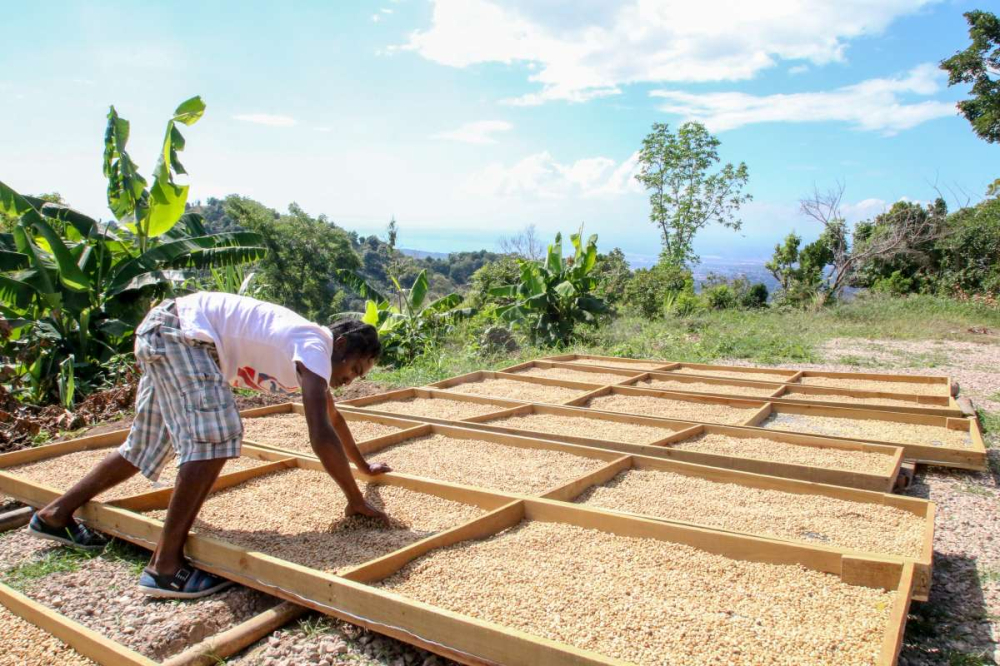
As Japan has always invested in the Jamaican coffee industry, most of the Blue Mountain Coffee is now owned by the Japanese, and they have also obtained the right of priority to buy Blue Mountain Coffee. In 1992, Jamaica sold 688 tons of Blue Mountain coffee to Japan, 75 tons to the United States and 59 tons to Britain. Now, 90% of Blue Mountain coffee is bought by the Japanese. Now that the rest of the world can only get 10% of Blue Mountain, Blue Mountain coffee is always in short supply, regardless of the price. By now, this kind of coffee has reached the point of being feverishly loved. UCC of Japan can be seen everywhere on the Blue Mountain Coffee Farm in Jamaica.
By 1981, about 1500 hectares of land in Jamaica had been reclaimed for coffee cultivation, followed by investment in another 6000 hectares of coffee land. In fact, today's Blue Mountain area is a small area with a planting area of only 6000 hectares, and it is impossible to grow all the coffee marked "Blue Mountain" there. Another 12000 hectares are used to grow two other types of coffee: Alpine Top Coffee and Jamaican Coffee.
How to distinguish between real and fake blue mountain coffee beans?
Because Blue Mountain Coffee has a very high status in the coffee world, there are a lot of fake Blue Mountain Coffee on the market. You may have drunk Blue Mountain Coffee, but the real Blue Mountain Coffee is actually very difficult to distinguish.
Qianjie concluded that the fake Blue Mountains on the market are generally divided into two situations. The first is the name edge ball. This kind of coffee is generally marked with names such as "Blue Mountain Coffee", "Blue Mountain mixed Coffee" and "Blue Mountain mixed Coffee". When you see this name, you can immediately judge that this is a fake Blue Mountain, which is generally impersonated by coffee beans from Brazil, Colombia and Indonesia.
The second is a real fake, using non-Blue Mountain coffee beans to pretend to be Blue Mountain Coffee beans. Strictly speaking, according to CIB standards, only coffee grown above 910m (3000 feet) above sea level is called Jamaican Blue Mountain Coffee, and must be purchased and processed by 4 legal estates certified by Jamaica Coffee Industry Council (CIB) in order to call Blue Mountain Coffee beans. The worse thing is to use other coffee beans as blue mountain beans, and the minor plot is to use coffee from outside the core area of the Jamaican Blue Mountains as blue mountain coffee beans. If this is the case, it depends on the certification.
The following three key points will be adopted, including the export company designated by the National Coffee Bureau, the only producing area with raw beans in buckets, and the certificate of authorization.
First, the real Blue Mountain Coffee is an export company designated by the National Coffee Bureau.
Some of the authentic Blue Mountain NO.1 in the Chinese market are mainly exported to China through direct subsidiaries from Japan, Australia and Europe. In 2013, according to the International Coffee Association (ICO), Japan accounted for 85% of the quota, while the United States, Europe and other countries each accounted for 5%.
According to ICO statistics, China accounts for 15% of the consumption of Blue Mountain coffee. It is worth noting that most of the limited Blue Mountain NO.1 is distributed in Japan, the United States and Europe. Due to Japan's investment in the Jamaican coffee industry, most of the Blue Mountain coffee was bought out by Japan. In 1992, Jamaica sold 688 tons of Blue Mountain coffee to Japan, 75 tons to the United States and only 59 tons to the United Kingdom.
In 2005, the Minister of Agriculture of Jamaica announced that Blue Mountain Coffee should be roasted in Jamaica, so it preferred to circulate directly from Jamaica to the consuming country through quota allocation, which was endorsed by the Jamaican Coffee Board (CIB). (the board of directors of ps:CIB is composed of landowners with a certain number of plantation estates in Jamaica.)
In addition, Logo, officially registered by the Jamaica Coffee Bureau, is used for certification and inspection of exported Jamaican Blue Mountain Coffee, and the BLUEMOUNTAINCOFFEE trademark is the logo of the authentic Jamaican Blue Mountain Coffee outer packaging.
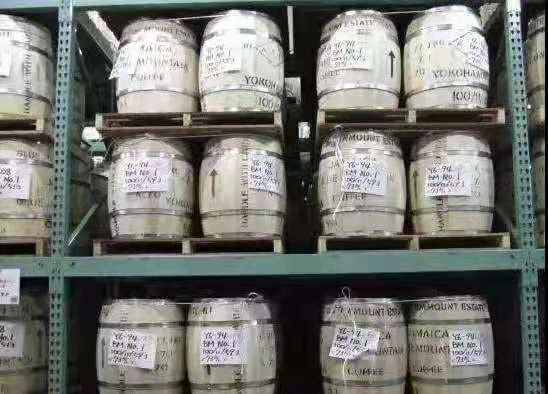
In 2022 this year, China already has a large share of direct trade with Jamaica, such as Clifton Farm, Silver Hill Manor, most of the blue mountain coffee beans are exported to our country, so if we see that the coffee information is produced by these estates, the credibility will be greatly increased.
Second, in the real sense, Blue Mountain Coffee is the only producing area where raw beans are filled in buckets.
Blue Mountain Coffee is so far the only coffee producing area that uses buckets of raw beans, and sacks are used for other coffee exports.
Flour shipped from Britain to Jamaica during the British colonial period in the mid-18th century was recycled in empty buckets and used to transport coffee and rum to insulate the aroma of coffee to ensure the quality of coffee. the buckets used today are wood from the temperate forests of the United States.
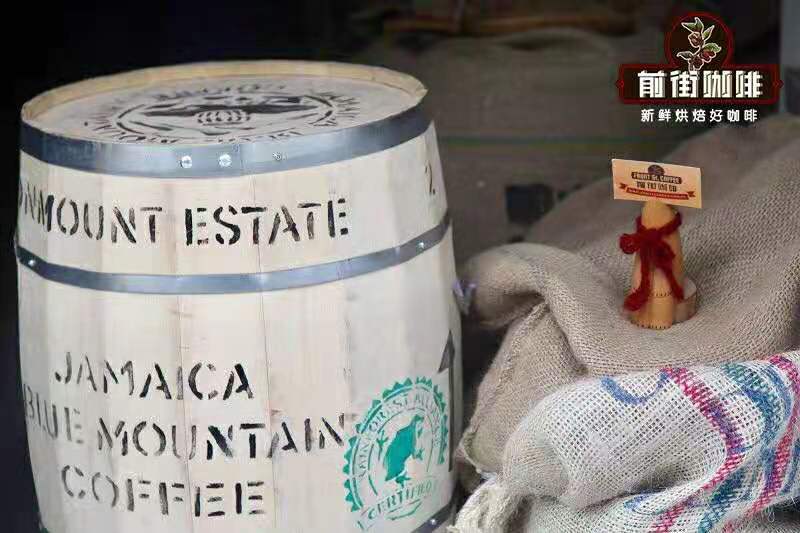
III. Certificate authentication
(blue Mountain Coffee is distributed by 4 Jamaican government-licensed processing producers and exported by 16 licensed exporters) (3) Certificate of Origin of Jamaican Blue Mountain Coffee
In the former street coffee, for example, Qianjie has an authorized sales certificate issued by the blue mountain coffee manufacturer. If consumers want to judge whether this is real blue mountain coffee, they can check with the shop owner whether there is an original barrel, certificate, and other certificates.
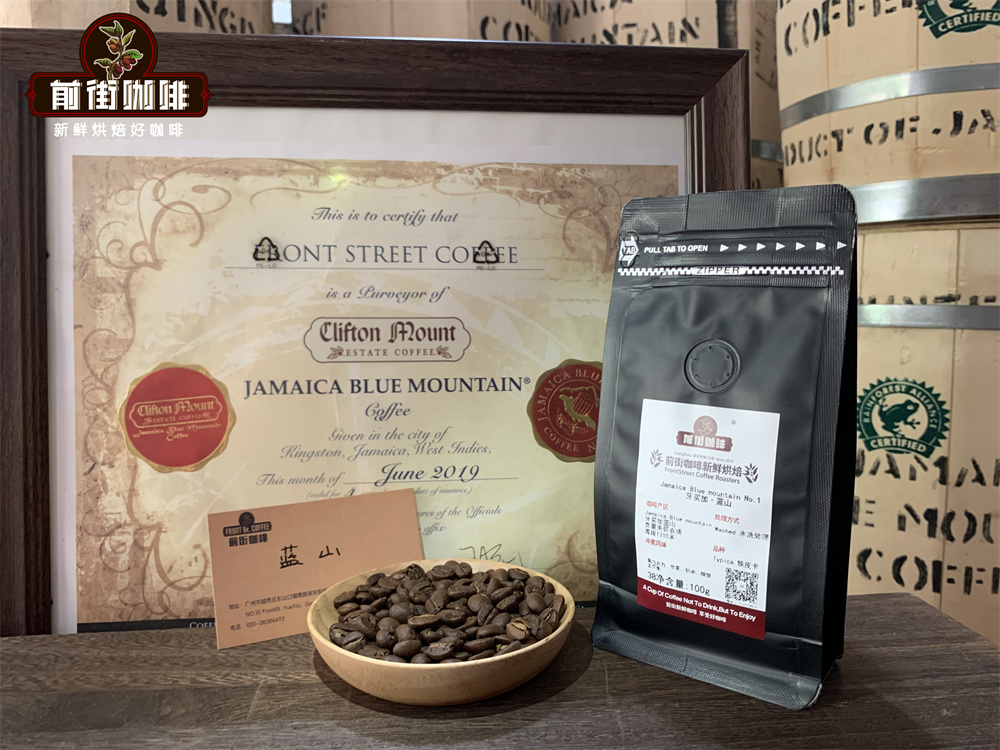
Why does Qianjie use Blue Mountain Coffee from Clifton Farm?
Clifton Manor is the oldest coffee farm in Jamaica, and only Clifton Farm in Jamaica has the "(RFA) rainforest water frog" logo.
Certification can be obtained only if it meets the Sustainable Agriculture system Standards, and the barrel has the mark of rainforest certification.
In addition, the Jamaica Coffee Authority (CIB) gives Wallenford, Jablum, Silver Hill and Moy Hall four legal coffee estates to concentrate on processing Blue Mountain coffee beans. All Jamaican Blue Mountain Coffee is marked with the name of its processed manor on its outer packaging. Mavis Bank Coffee Factory, founded in 1923, is the largest estate of Blue Mountain Coffee with M.B.C.F printed in its barrel. At the same time, the blue mountain coffee beans from Clifton Farm were also the first batch to be imported to the mainland.
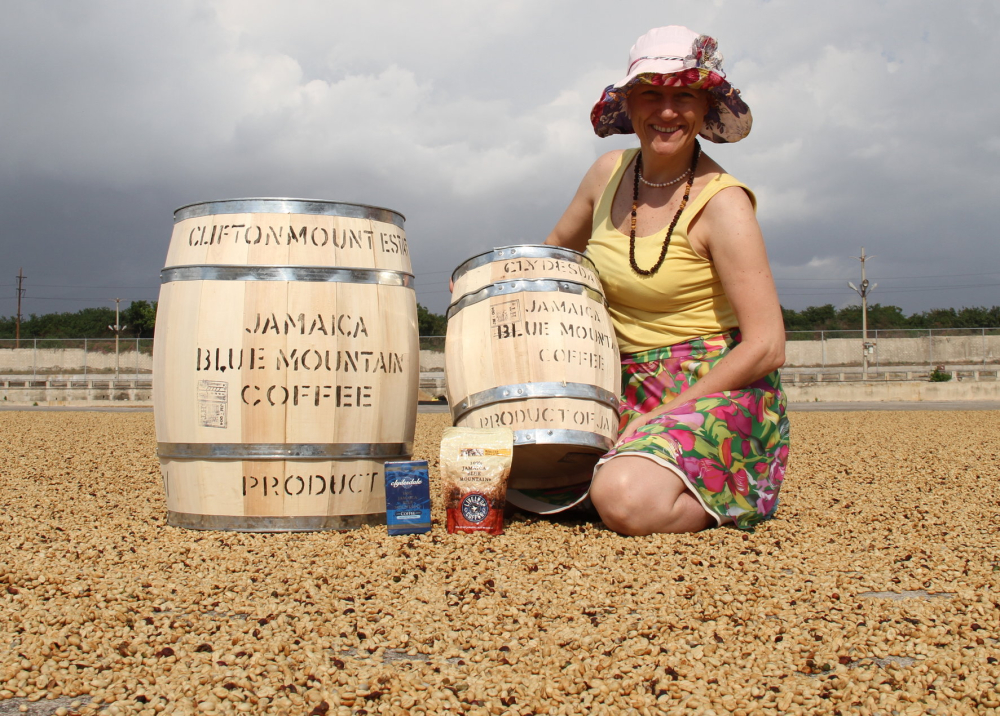
Blue Mountain Coffee Price
Many friends know that Blue Mountain coffee is very expensive, but they don't know how much it actually costs. In fact, blue mountain coffee is a lot more expensive than ordinary coffee beans, but in the current rosy summer, the price of blue mountain coffee beans is reasonable. In the past, the retail price of street coffee was taken as an example. The ripe bean price of Jamaica Blue Mountain No. 1 coffee bean was 158 yuan / 100g, which was cheaper than the Rosa coffee bean of the famous manor. If you want to go to a coffee shop for a drink, it's only 60 yuan.
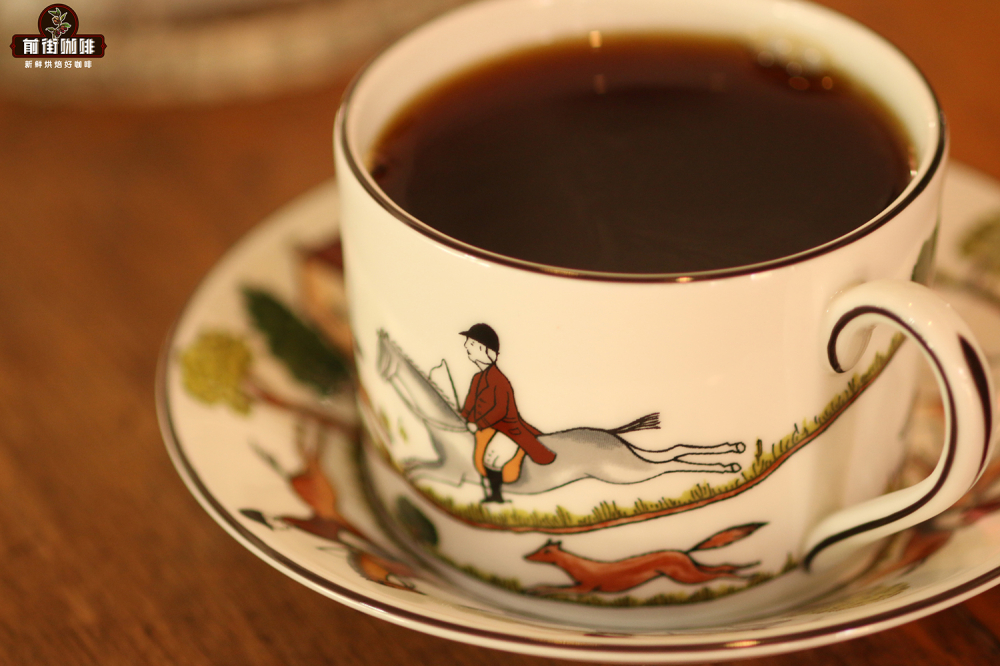
For more boutique coffee beans, please add private Qianjie coffee on Wechat. WeChat account: kaixinguoguo0925
Important Notice :
前街咖啡 FrontStreet Coffee has moved to new addredd:
FrontStreet Coffee Address: 315,Donghua East Road,GuangZhou
Tel:020 38364473
- Prev
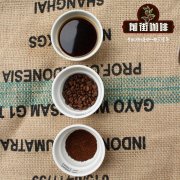
Introduction to the Flavor characteristics of Emerald Manor-Diamond Mountain Coffee
The Emerald Manor Diamond Hill Series (Diamond Mountain) is planted on the suburban slopes of the Pokuit producing area on the right side of the Balu volcano, Canas Verdes and Jaramillo, at an altitude of about 1400-1700m. The coffee grown in this area is mainly Typica, Bourbon and Catuai. The volcanic soil in this area is an excellent place to grow coffee and is rich in volcanic mineral soil.
- Next

Introduction to the flavor characteristics of Panamanian Hartmann coffee
Country: Panama Grade: SHG region: Walken region altitude: 1250-1700 Meters treatment: red Wine Variety: Kaddura Manor: Hartman Manor Flavor: smoked wood spice, berry, fruit wine Kaddura is a single gene variant of Bourbon bourbon, was found in Brazil in 1937, production capacity and disease resistance are better than bourbon, and the tree is better
Related
- Detailed explanation of Jadeite planting Land in Panamanian Jadeite Manor introduction to the grading system of Jadeite competitive bidding, Red bid, Green bid and Rose Summer
- Story of Coffee planting in Brenka region of Costa Rica Stonehenge Manor anaerobic heavy honey treatment of flavor mouth
- What's on the barrel of Blue Mountain Coffee beans?
- Can American coffee also pull flowers? How to use hot American style to pull out a good-looking pattern?
- Can you make a cold extract with coffee beans? What is the right proportion for cold-extracted coffee formula?
- Indonesian PWN Gold Mandrine Coffee Origin Features Flavor How to Chong? Mandolin coffee is American.
- A brief introduction to the flavor characteristics of Brazilian yellow bourbon coffee beans
- What is the effect of different water quality on the flavor of cold-extracted coffee? What kind of water is best for brewing coffee?
- Why do you think of Rose Summer whenever you mention Panamanian coffee?
- Introduction to the characteristics of authentic blue mountain coffee bean producing areas? What is the CIB Coffee Authority in Jamaica?

